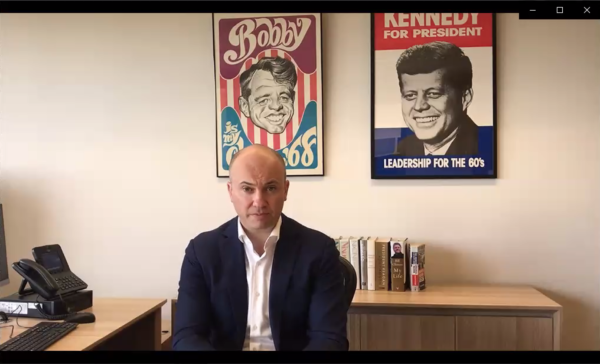From The Canberra Times,
When the pandemic hit, it was the state leaders who took the lead again. Shutting down state borders early, enforcing strict COVID-19 rules, and appearing beside their chief health officers each day to update the public on the number of cases, the number of cases with unknown sources, and on new restrictions.
While none of us were in the national cabinet’s Zoom meetings, from the outside it appeared that the differing responses of state and federal governments were driven by two different primary concerns. For the Prime Minister it was the economy; for the premiers and chief ministers it was hospital intensive care units being overrun. This tension makes sense, given the states run the hospitals and the federal government has the biggest economic levers at its disposal (and had already congratulated itself on a budget surplus for May 2020).
For a brief time, the national cabinet gave us a glimpse into a world where our leaders worked co-operatively, if not in consensus 100 per cent of the time, and genuinely seemed to be putting the public good ahead of party politics.
The bushfires, and then the pandemic, elevated the state premiers and chief ministers to the national stage, putting them on equal footing with the Prime Minister. During the course of the year they proved themselves willing to go it on their own when necessary, something voters seemed to approve of wholeheartedly.
And in recent months, state governments have stepped in to lead on another huge public policy issue where the federal government has failed: climate change. Federal Energy and Emissions Reduction Minister Angus Taylor has achieved little except to spruik a “gas-led recovery” and complain there’s too much wind and solar in the grid. The federal government has done nothing but weaken Australia’s clean energy investment infrastructure and prop up gas and coal-fired power, sending mixed signals to the market and effectively stalling any progress.
In contrast, every state and territory has a net-zero emissions by 2050 policy, if not better – like the ACT’s 2045 policy – and state Coalition governments now have some of the most ambitious climate plans in the country. With the UN Climate Summit scheduled for Saturday evening, it is the states, not the federal government, that have been noticed for their climate ambition.
The NSW Energy and Environment Minister, Matt Kean, has achieved what his federal counterpart could not: unite the Liberals, Nationals, Labor, Greens, and most of the crossbench to pass a massive clean energy package, expected to drive $32 billion of investment in private renewable energy infrastructure, support up to 12 gigawatts of new wind and solar generation plus two gigawatts of storage, and generate 6300 construction jobs and 2800 ongoing jobs over the next 10 years.

Image: pv magazine
Kean told The Australia Financial Review‘s Energy and Climate Summit: “I’m not here to support vested interests. I’m here to support the community interest and that’s exactly what this policy does … I’m here to put consumers first.”
Here in the (100 per cent net renewable) ACT, minister Shane Rattenbury welcomed the competition from NSW, observing that the NSW plan to electrify its entire fleet of 8000 buses by 2030 beats the ACT’s 2040 target for ambition.
“I’m all for competition on climate change action!” said Rattenbury. “NSW’s efforts will increase the volume of electric buses, help drive down prices, and benefit the ACT as we transition our own bus fleet to emissions-free. Our two governments may also be able to co-operate, and we may be able to move our ACT target forward.”
Author: Ebony Bennett
Ms Ebony Bennett is the Deputy Director of The Australia Institute and has worked in federal politics for more than a decade. Ms Bennett has published research on climate change, gender and street harassment. She regularly appears as a commentator on Sky News and as a contributor for the Guardian and Fairfax publications.
The views and opinions expressed in this article are the author’s own, and do not necessarily reflect those held by pv magazine.
This content is protected by copyright and may not be reused. If you want to cooperate with us and would like to reuse some of our content, please contact: editors@pv-magazine.com.








By submitting this form you agree to pv magazine using your data for the purposes of publishing your comment.
Your personal data will only be disclosed or otherwise transmitted to third parties for the purposes of spam filtering or if this is necessary for technical maintenance of the website. Any other transfer to third parties will not take place unless this is justified on the basis of applicable data protection regulations or if pv magazine is legally obliged to do so.
You may revoke this consent at any time with effect for the future, in which case your personal data will be deleted immediately. Otherwise, your data will be deleted if pv magazine has processed your request or the purpose of data storage is fulfilled.
Further information on data privacy can be found in our Data Protection Policy.